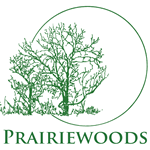“Love and say it with your life.”
—Augustine of Hippo
A recent Saturday afternoon found me driving along gravel roads in rural Benton County, hungry for sites other than the four walls I’ve been staring at for weeks during this spring of self-isolation. I was listening to a podcast called Snap Judgement, and an episode I first heard several years ago came on. Suddenly, I found myself transported to Joplin, Missouri, May 22, 2011—the day an EF-5 multiple vortex tornado tore the town apart.
A lot has happened in the intervening years since 2011, so you may not recall news stories about a group of people who survived the storm huddled together in a gas station beer cooler. When I first heard this podcast, I had vague recollections of the story. What follows is something I wrote after originally hearing this podcast:
All told, 24 people survived in that small space, while everything around them was destroyed. People sheltered in beer coolers in other gas stations and didn’t survive. But for some reason, these folks did.
The podcast revisited that day, talking to several individuals who had been present. I listened to a mix of their reminiscences (recorded for the podcast) and audio taken by cellphone during the tornado. One young man spoke of getting to the gas station with his best friend, moments before the tornado hit. He remembers lying in the dark cooler as the storm raged outside, fearing for his life. Into that chaos, his buddy whispered, “Hey, man, I love you.”
At this point in the story, the podcast cuts back to the audio recorded that day in the beer cooler. You hear a youthful male voice say, “I love you. I love all you all.” He’s answered by other voices, calling out to the strangers sheltering beside them in the dark, in the storm: “I love you.”
Listening, alone in my car with nothing in my sights but blue sky and green, green fields, I felt goosebumps break out on my arms. Tears came easily to my eyes, rolling down my cheeks unchecked. Love. It is the natural state and impulse of the human soul, I thought. We get busy, we get distracted, and we lose sight of this truth amongst all the static modern life throws our way. But love comes back to us in moments of extremity …
Love is our highest calling and our most natural state.
Love is the only house, as the song says, big enough for all the pain in this world.
Love makes us human. And yet, being human, we constantly lose sight of it … the impulse to love is not enough if it doesn’t lead to some expression: I love you. I love all of you.
Many wise people and sages through the years tell us: choosing love is not the easy route. Love in action is often hard. As Rilke says:
“It is also good to love: because love is difficult. For one human being to love another human being: that is perhaps the most difficult task that has been entrusted to us, the ultimate task, the final test and proof, the work for which all other work is merely preparation.”
—Rainer Maria Rilke, Letters to a Young Poet
Love calls upon us to stand up and speak up and lead up. It calls us to be our best selves and to look for the best selves not just in others but in “The Others”—whomever that is in our lives.
“It is no great feat, after all, to love the loveable, to love our friends and those who tell us we are wonderful; but to love the unlovable, to love those who do not love us, to love our enemies—that is love.”
—John Caputo, On Religion
Whatever darkness we are in: a beer cooler in a tornado, a storm of divisiveness in our political lives or caught up in a global crisis without a clear path ahead—love is the light that will illuminate it.
—Jenifer Hanson, Prairiewoods director


